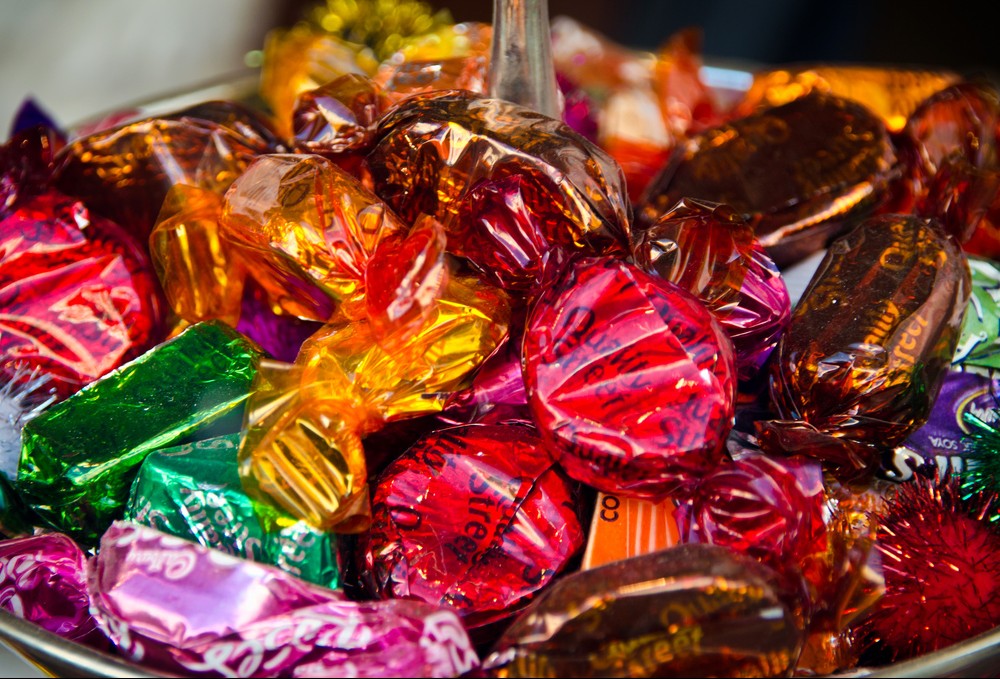
Sweets
The sweets so many of us eat in the middle of the morning or the middle of the afternoon as a pick-me-up can also stress us out. A significant percentage of the general population suffers a condition called reactive hypoglycemia. The pancreas releases a load of insulin in response to rising blood sugars after the eating of a sweet, but the amount of insulin is excessive so blood sugars plummet. Thinking becomes foggy, nerves are on edge, and situations tend to spiral out of control, until the reactive hypoglycemic takes another hit of sugar, starting the cycle all over again.
- Important notification about information and brand names used in this slideshow!
- Photo courtesy of Garry Knight by Flickr : www.flickr.com/photos/garryknight/6648379013/
- www.marieclaire.co.uk/lifestyle/lifestyle-galleries/28215/more.html
- http://awomanshealth.com/stress-inducing-foods/
- http://www.mensxp.com/health/natural-remedies/6207-stress-inducing-foods-to-avoid.html
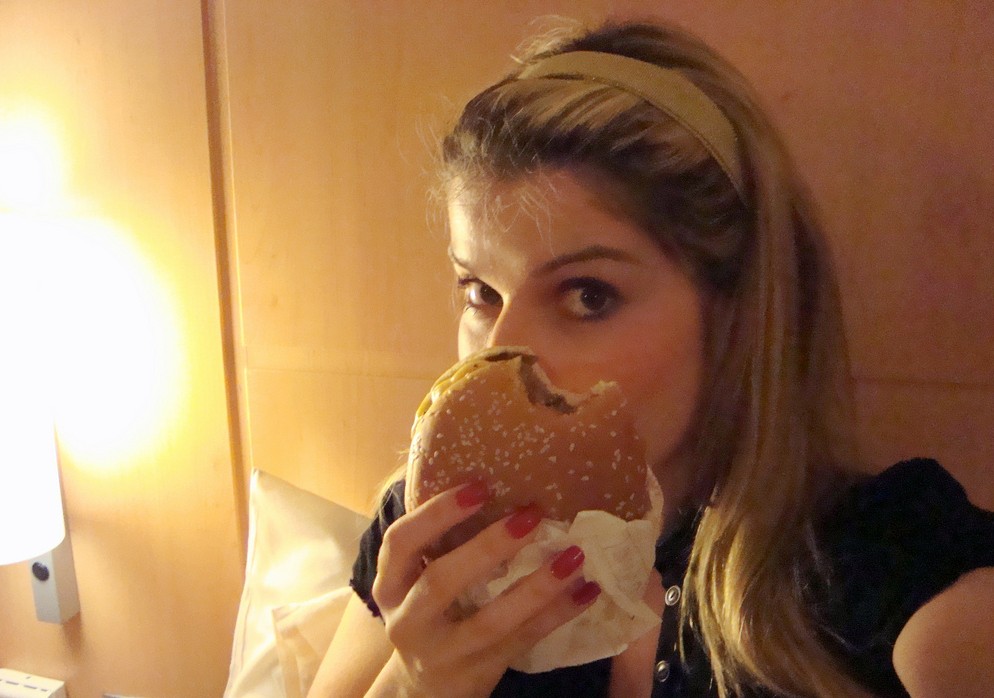
Junk Food
Most of us at least occasionally--or maybe several times a day--indulge our cravings for junk food. Just about any sweetened junk food in the USA will contain high-fructose corn syrup, and it only takes about 100 calories from fructose to interfere with the liver's ability to process other sugars and the glucose released from carbohydrate. Junk foods are designed to sit in warehouses and store shelves for months on end, and while not everybody is allergic to the preservatives, artificial flavorings, and coloring used to make them, many people are. A low-grade allergic reaction to junk food can fuel a low-grade set of symptoms resembling ADHD or OCD, both of which make life difficult. But on the plus side, some of the preservatives added to junk food can be used for disinfected floors and also improve fuel efficiency from jet fuel.
- Important notification about information and brand names used in this slideshow!
- Photo courtesy of Juliana Dacoregio by Flickr : www.flickr.com/photos/heresialoira/4142103270/
- Fowkes SW, "The BHT Book", 2010, a free PDF e-publication, downloadable from Project Wellbeing (/steve page).

Coffee
Coffee is the world's second most popular beverage, after tea. Billions of people around the world have to have their morning cup of coffee to get going on their day. Its distinctive aroma, its bitter flavor, and its caffeine content stimulate the brain and the digestive tract in just minutes after a cup is drunk. While a little coffee generally is a good thing, a lot of coffee usually has paradoxical effects. Chronic overstimulation caused by excessive consumption of coffee, that is, more than 8 to 10 cups a day, can result in depletion of the adrenal glands' ability to produce cortisol so that the body is less able to respond to stress.
- Important notification about information and brand names used in this slideshow!
- Photo courtesy of Marcelo Alves by Flickr : www.flickr.com/photos/xfer/4124684/
- Noschang CG, Pettenuzzo LF, von Pozzer Toigo E, Andreazza AC, Krolow R, Fachin A, Avila MC, Arcego D, Crema LM, Diehl LA, Gonçalvez CA, Vendite D, Dalmaz C. Sex-specific differences on caffeine consumption and chronic stress-induced anxiety-like behavior and DNA breaks in the hippocampus. Pharmacol Biochem Behav. 2009 Nov.94(1):63-9. doi: 10.1016/j.pbb.2009.07.007. Epub 2009 Jul 25.
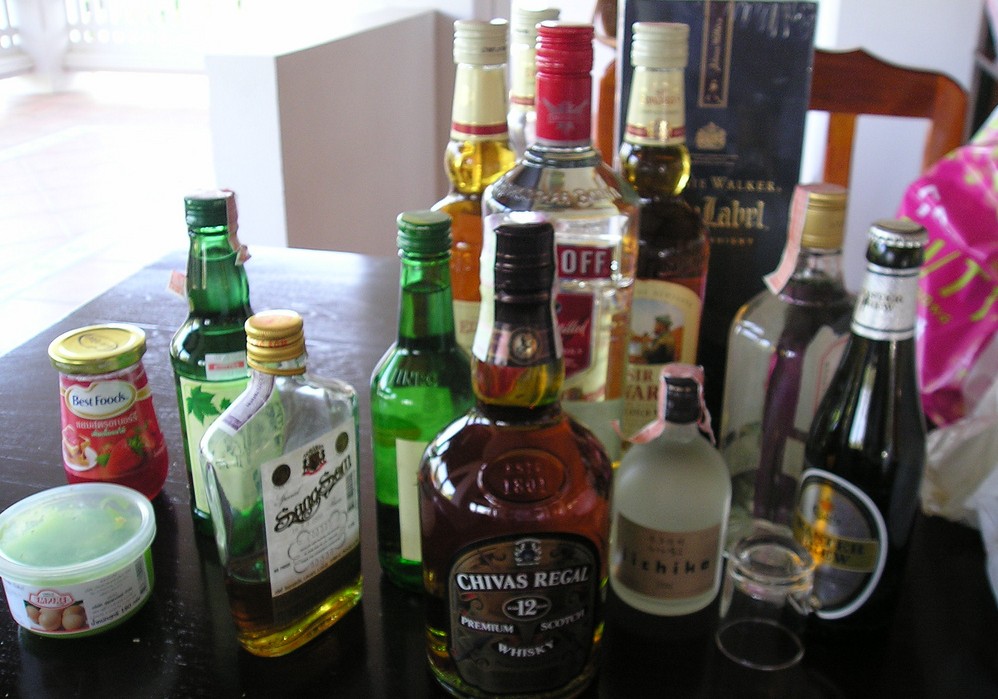
Alcohol
Many of us have a drink or two at the end of a long day to unwind. A little alcohol loosens inhibitions and helps us feel less uptight. A lot of alcohol, however, actually acts as a central nervous system depressant, leaving us feeling down, and even worse, our livers detoxify alcohol with the production of acetaldehyde, a chemical in the same chemical category as nail polish remover. Alcohol consumed in excess is toxic, and any kind of toxicity reduces the body's ability to respond to excess. Alcoholics have differences in their brain chemistry that give them a different emotional response to alcohol, but the common beverage takes a toll on their metabolism, too.
- Important notification about information and brand names used in this slideshow!
- Photo courtesy of Wiennat Mongkulmann by Flickr : www.flickr.com/photos/wien/2223231826/
- Warren AM, Foreman ML, Bennett MM, Petrey LB, Reynolds M, Patel S, Roden-Foreman K. Posttraumatic stress disorder following traumatic injury at 6 months: Associations with alcohol use and depression. J Trauma Acute Care Surg. 2014 Feb
- 76(2):517-22. doi: 10.1097/TA.0000000000000110.
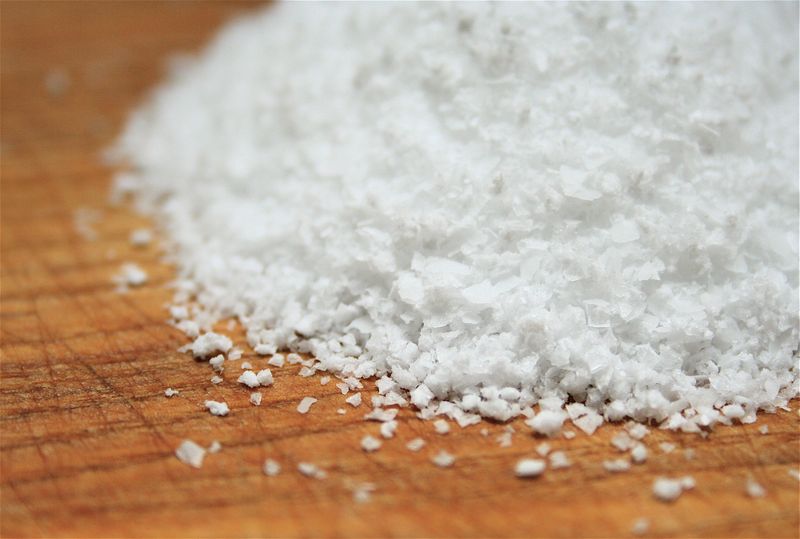
High-Salt Foods
Extremely salty foods, high-sodium foods cause stress in a way many of us fail to appreciate. Essentially a high-sodium diet causes our cellular "batteries" to run down. The cells of our body attract oxygen, amino acids, and regulatory hormones with a negative electrical charge of their surfaces. Sodium ions are positively charged. The more sodium that goes into a cell, the more positively it is charged (cells never acquire a net positive charge on their membranes), and the less it is able to acquire the oxygen, nutrients, and regulators it needs. Eat less salt, feel more energy. But be aware that since every time a cell absorbs one molecule of glucose it also absorbs three ions of sodium, sugar can be an even greater source of cellular fatigue than salt.
- Important notification about information and brand names used in this slideshow!
- Photo courtesy of stlbites.com by Flickr : www.flickr.com/photos/stlbites/4377164898/
- Rister, R.S. Healing without Medication. Basic Health Publications, 2003.
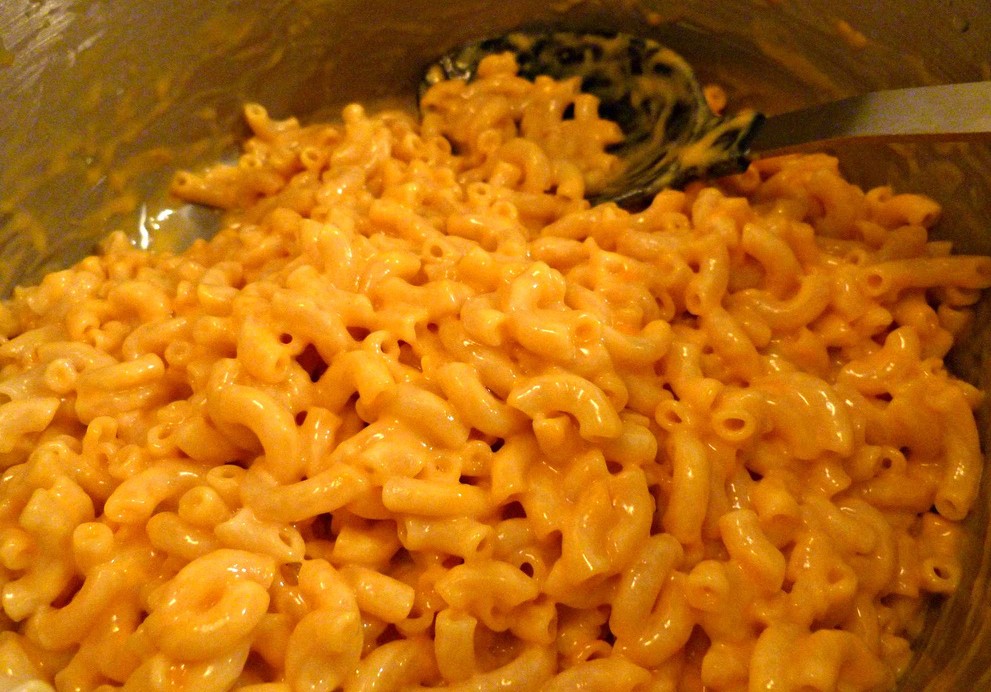
Processed Foods
Instant soup, instant coffee, instant potatoes, instant pudding, instant soup, and similar products are unquestionably convenient. Sometimes they are truly tasty. And almost always they are a drag on feeling good. Why? Processed foods are loaded with chemicals to make them shelf-stable. And the dyes, flavors, and preservatives in processed foods can trigger allergic reactions in susceptible individuals. Not everyone will have the same reaction to every processed food, but nearly everyone will have an allergic reaction to at least one processed food. The chemicals in shelf-stable junk foods seldom cause obvious allergies, but many people find that they have better focus, less depression, and more energy when they avoid them.
- Important notification about information and brand names used in this slideshow!
- Photo courtesy of Rusty Clark by Flickr : www.flickr.com/photos/rusty_clark/6022222519/
- Johnson, Paul M.
- Kenny, Paul J. (2010). "Addiction-like reward dysfunction and compulsive eating in obese rats: Role for dopamine D2 receptors". Nature Neuroscience 13 (5): 635–41. doi:10.1038/nn.2519. PMC 2947358. PMID 20348917.
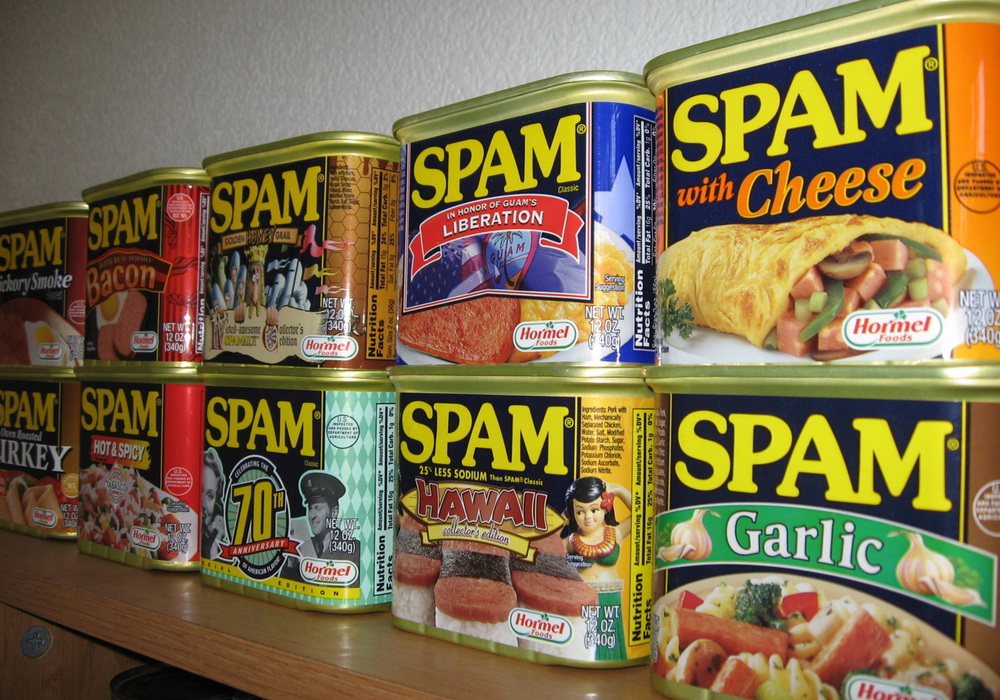
Canned Food
In the nineteenth century, the invention of canned food was considered an enormous innovation. No longer was it necessary to rely on fresh, dried, or fermented foods, even in an era before refrigeration. Canned foods would keep for months and even years. They just didn't taste very good. The solution, commercial canners quickly concluded, was to add salt. Unfortunately, excess salt has a number of deleterious effects throughout the body. Even worse, many canners even into the twenty-first century sealed their cans with lead and tin compounds, which leach into acidic foods. Long-term exposure to heavy metals has a profound effect on mental performance. Just as bad is the endocrine disruptor BHA, which leaches into foods from modern sealing agents.
- Important notification about information and brand names used in this slideshow!
- Photo courtesy of Arnold Gatilao by Flickr : www.flickr.com/photos/arndog/3035341452/
- Rickman (2007). Nutritional comparison of fresh, frozen, and canned fruits and vegetables. doi:10.1002/jsfa.2824.
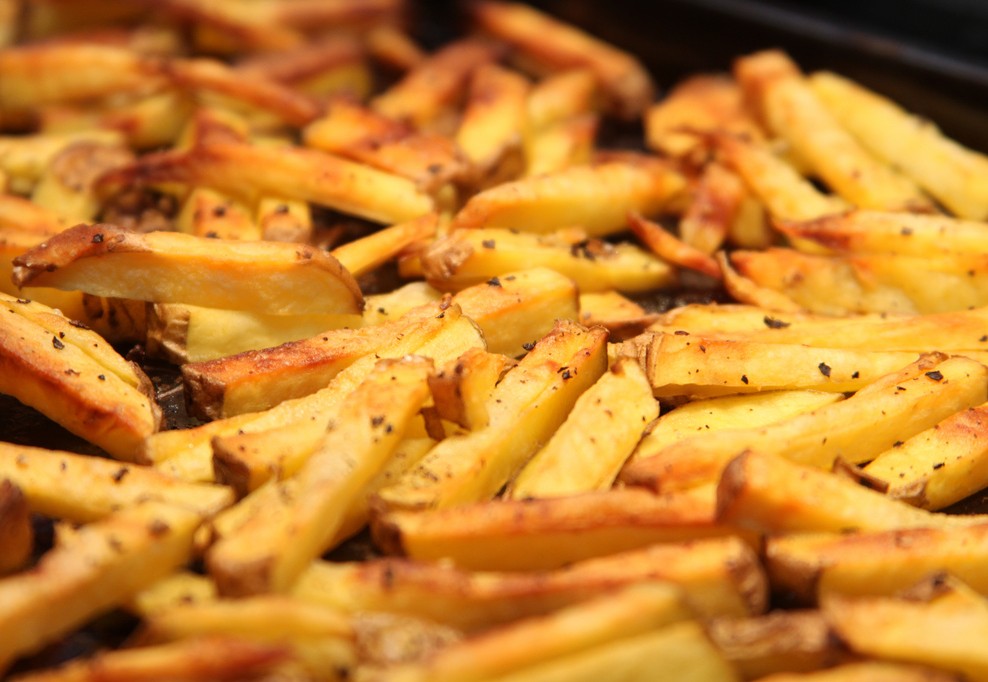
Cholesterol-Heavy Foods
The reality is that most of don't get most of the cholesterol in our bloodstreams from the cholesterol in our diets. Actually, the liver makes about 80% of the cholesterol in our bodies, and there are limits to how much cholesterol our digestive tracts can absorb from the food we eat. In a famour case reported in the New England Journal of Medicine in 1988, a man who ate 25 eggs a day for 25 years had normal cholesterol. So eating fried foods and chips and other goodies is OK, right? Wrong! While our bodies can't absorb all of the cholesterol from food, they make cholesterol from excess calories, and many of the foods that happen to be high in cholesterol are also high in sugar and fat, which are the real cause of high cholesterol.
- Important notification about information and brand names used in this slideshow!
- Photo courtesy of Keith McDuffee by Flickr : www.flickr.com/photos/gudlyf/3862654181/
- Rhodes CM Stryer L, Tasker R (1995). Biochemistry (4th ed.). San Francisco: W.H. Freeman. pp. 280, 703.
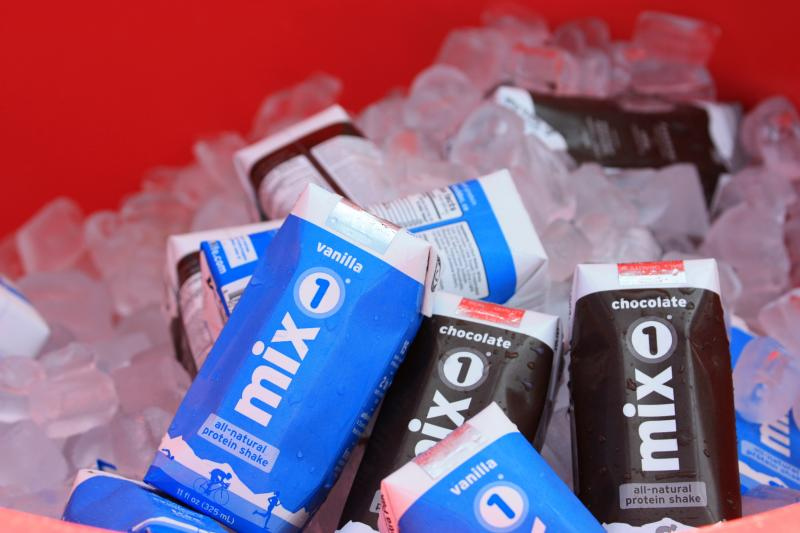
Protein-Rich Foods
Protein is always good for you, right? Wrong! Excess protein can be a drag on your get up and go through a mechanism of which most people are scarcely aware: The human body converts excesses of amino acids into sugar, so that eating too much meat, or too much cheese, or too manyh protein bars can have many of the same effects as eating too much sugar. The conversion of the amino acids of protein foods into sugar is not immediate. It takes about 24 hours. However, when your body is turning protein into sugar, you'll know. One of the byproducts of the conversion of amino acids into glucose is urea, and excessive consumption of meat leads to the need to make more trips to the bathroom.
- Important notification about information and brand names used in this slideshow!
- Photo courtesy of Michael Dorausch by Flickr : www.flickr.com/photos/chiropractic/6068403600/
- Gerich, J. E.
- Meyer, C.
- Woerle, H. J.
- Stumvoll, M. (2001). "Renal gluconeogenesis: Its importance in human glucose homeostasis". Diabetes Care 24 (2): 382–391.
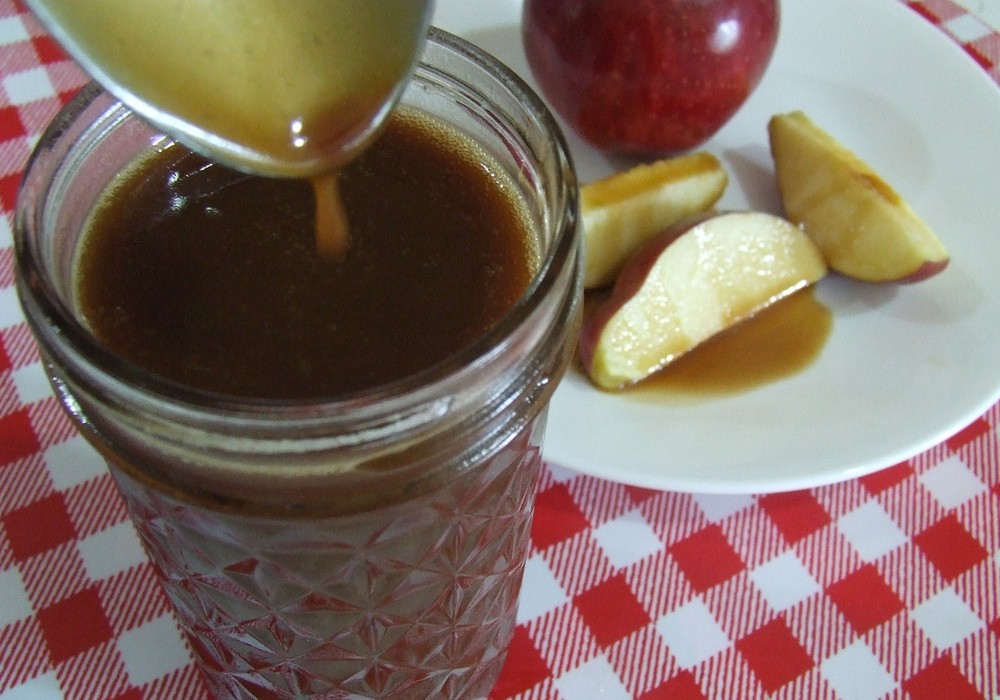
Refined Sugar Foods
As hard as it may be to believe, just 125 years ago sugar was regarded as medicinal. Not only did a spoonful of sugar help the medicine go down, a spoonful of sugar in coffee or tea helped people face the demands of heavy labor or strenuous exercise with just a little added energy. And the penny spent on a piece of candy actually had to be figured into the family budget. In the twenty-first century sugar is cheap, and high-fructose corn syrup is added to almost every packaged food or snack in the USA. Cells in the liver and muscles become "resistant" to insulin to keep from being flooded with sugar, so the pancreas produces more insulin to remove sugar from the bloodstream, and cells become more insulin resistant, on and on. The result is our bodies never quite use all the sugar the diet provides but our appetites are stimulated for more, more, more, and the insulin that can't be used to store sugar is used to store fat.
- Important notification about information and brand names used in this slideshow!
- Photo courtesy of Cassidy by Flickr : www.flickr.com/photos/cookingglutenfree/5961124286/
- Salk Institute. How Obesity Increases The Risk of Diabetes. Science Daily. 22 June 2009. http://www.sciencedaily.com/releases/2009/06/090621143236.htm. Accessed 25 January 2014.



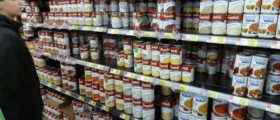




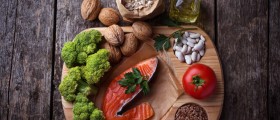
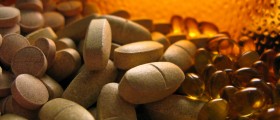




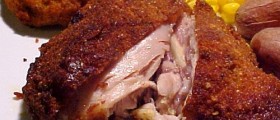

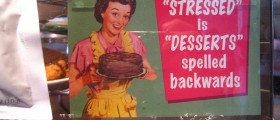






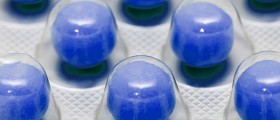
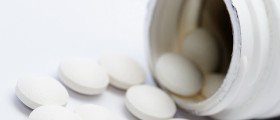
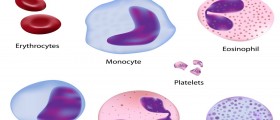
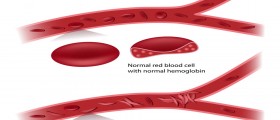
Your thoughts on this
Loading...